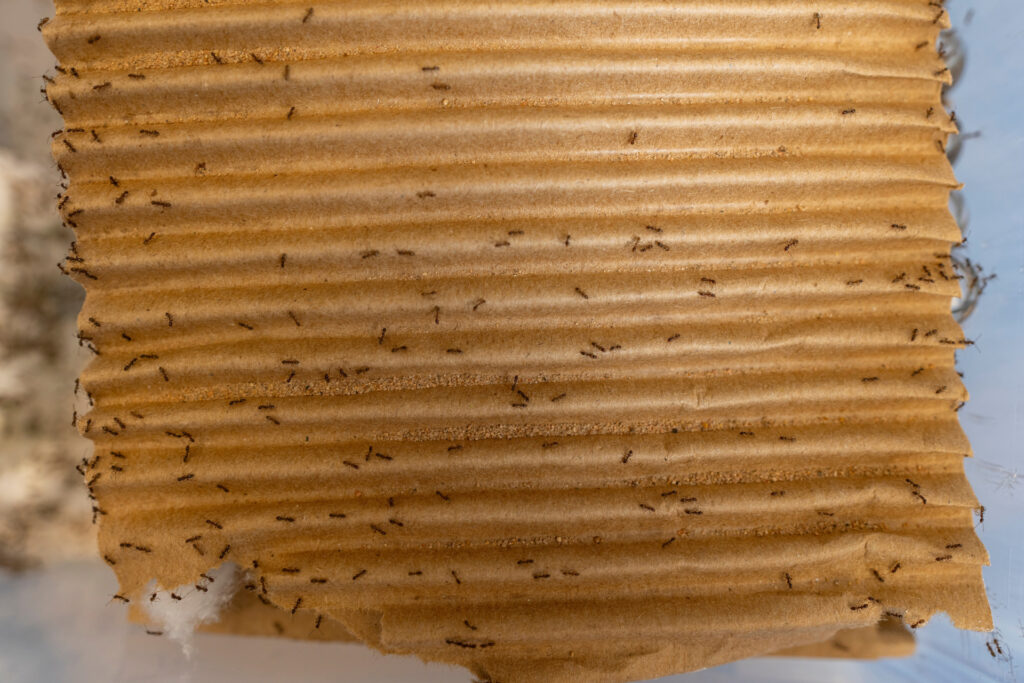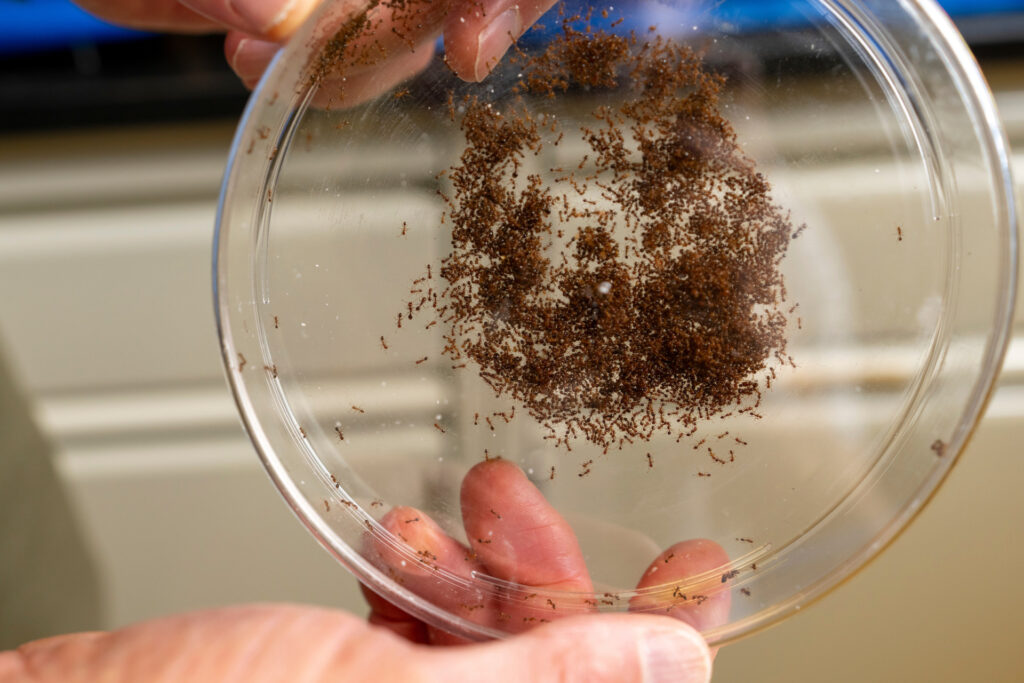Newswise — Dr. Edward Vargo, professor in the Department of Entomology and chair of Urban Entomology in the Texas A&M College of Agriculture and Life Sciences, has been elected a fellow of the Entomological Society of America.
Vargo is internationally recognized for his research on the reproductive biology and molecular ecology of social insects and urban pests. He received the award at the association’s recent annual meeting in National Harbor, Maryland.
“Fellowship is the society’s highest award, and when I look at those who have been named fellows, I see that this is a very distinguished group,” Vargo said. “I think this award recognizes what entomologists have achieved during their careers and the impact they have had on the field. So to be included in this group is a real honor.”
Scientific curiosity leads to entomology
Vargo’s interest in entomology didn’t begin with a fascination with insects.
Louis Thomas’s book “The Life of a Cell” first sparked his imagination. He was interested in the behavioral and biological concepts surrounding Thomas’s explanation of how cells work together to benefit the organism. He then discovered that ants and termites, bees and wasps could be considered “superorganisms” because, like the cells of an organism, they coordinate individual activities and work together to benefit the group.
His doctoral research focused on the social regulation of reproduction and development in fire ant colonies.
“In graduate school, we were studying this very large pest species, but I was doing very basic research in the lab, so we weren’t studying how fire ants affected humans and ways to control them,” he said.
In 1987, Vargo received a National Science Foundation postdoctoral fellowship to study the regulation of reproduction and caste development in Argentine ants with Dr. Luc Passera of Paul Sabatier University in Toulouse, France.
By the late 1980s, fire ants had spread into Austin and became a pest in agricultural and urban areas throughout the state. From 1989 to 1998, Vargo returned to the University of Texas as a research scientist studying the reproductive biology of fire ants.
“Fire ants start out like many invasive species,” he said. “They hung out for a while, and then something happened and things exploded. I started working with the Texas Department of Agriculture to address the problem with fire ants, and I realized this was important.”
Scientific opportunities for social pests
In 1998, Vargo joined North Carolina State University’s Department of Entomology as an assistant professor and began studying a pest he had never encountered before—termites.
“There’s a lot we don’t know, so we’re discovering the basic biology and foraging behavior because the way termites live and forage underground is very mysterious,” he said.
New genetic and molecular methods offer Vargo and others the opportunity to understand termite social organization, foraging dynamics and other behaviors. Vargo said the approach helps him and other scientists understand invasive pest species and trace the history of their introduction.
“I saw an opportunity to get some basic biological information and do something in terms of controlling pests that would be of interest to the pest management industry,” he said. “It’s an integration of molecular ecology and urban entomology, using molecular genetics methods to understand groups and populations.”

Learn about urban pests
Vargo assumed his current position in 2014. His interdisciplinary research in urban entomology uses genetics, behavior, and physiology to study the reproductive biology, population genetics, and management of urban pests, including fire ants, termites, cockroaches, and bed bugs.
Next-generation genome sequencing provides more ability to identify genetic differences between species and how individuals from one population are related to another, he said.
Vargo’s genetics research investigates the reproductive structure of termites and ant colonies, the spread and population biology of bed bugs and cockroaches, the invasion biology of urban pests, and management approaches aimed at eliminating termite and ant colonies.
He gained insight into how environmental changes are affecting the population dynamics of stinky ants, the country’s number one ant pest. This species is native to the United States, and its single-queen colonies are very small in forest and rural environments. But their social behavior changes dramatically in urban and suburban environments, where colonies can have thousands of queens.
“More people have this problem than any other ant species,” he said. “So we’re trying to better understand the dramatic changes that occur when social organization moves from natural to urban environments.”
His research also explores the growing concern of pest resistance to insecticides and how to reduce or prevent the spread of resistance genes within pest populations.
His research on chemical communication in social insects focuses on the role of queen pheromones in caste determination, recognition of kings and queens by workers, and the regulation of reproduction in ant and termite colonies.
Vargo’s team has published more than 180 scientific papers and book chapters. He has delivered or co-authored more than 300 presentations at regional, national and international conferences. He has supervised 10 doctoral students, 9 master’s students, 11 postdoctoral researchers, and 6 visiting scientists.
He has held leadership positions in professional societies, including President of the Medical, Urban and Veterinary Entomology Section of the Entomological Society of America; President of the Entomological Society of North Carolina; President and Secretary-Treasurer of the North American Chapter of the International Union for Social Insect Research. He has served as ” environmental entomologywho has also provided advice to the Korean and Australian governments on interception and remediation of introduced fire ants.
“It’s such an honor to be recognized and to feel that your colleagues value your work,” he said.
#Vargo #elected #fellow #Entomological #Society #America
Image Source : www.newswise.com
